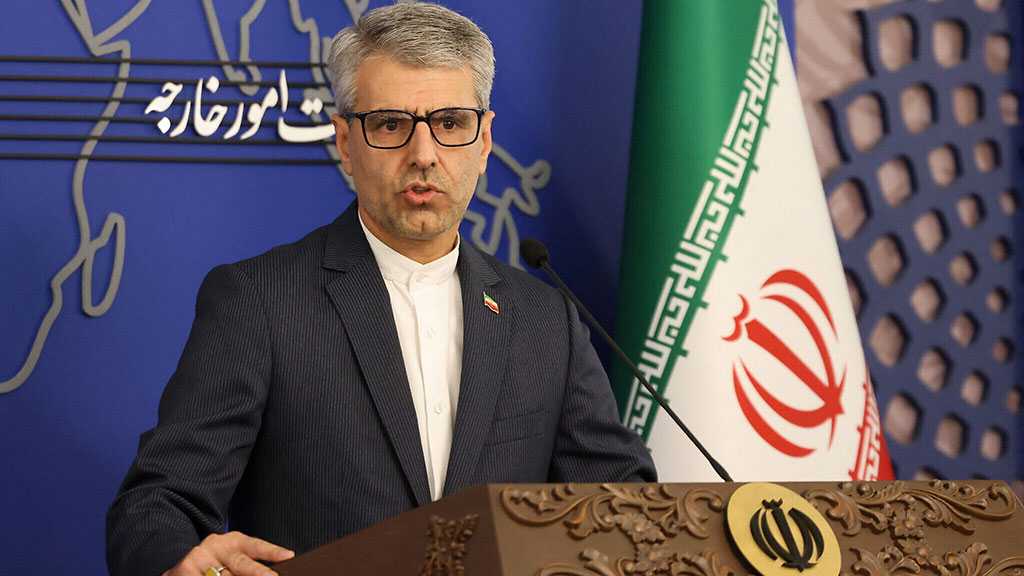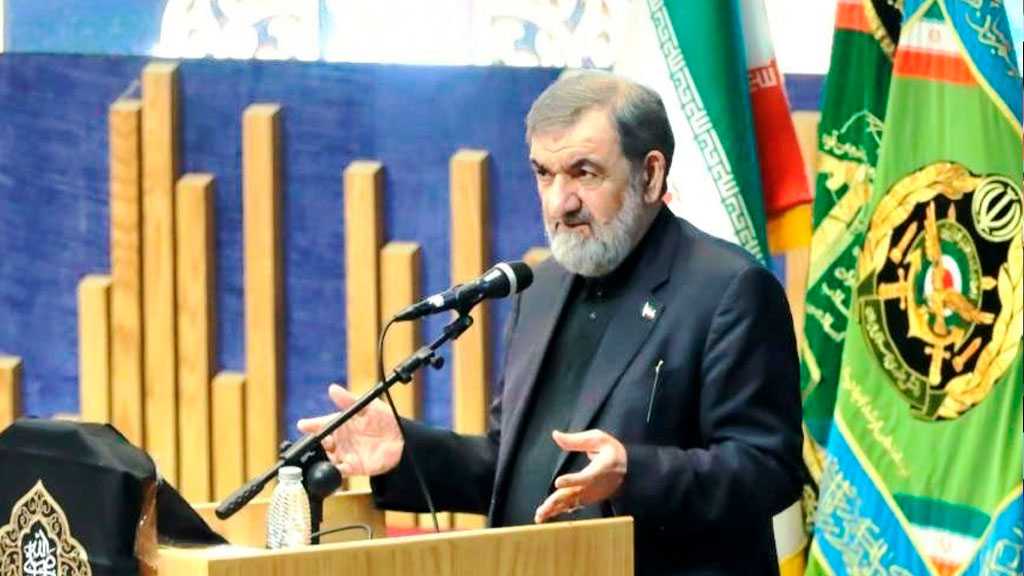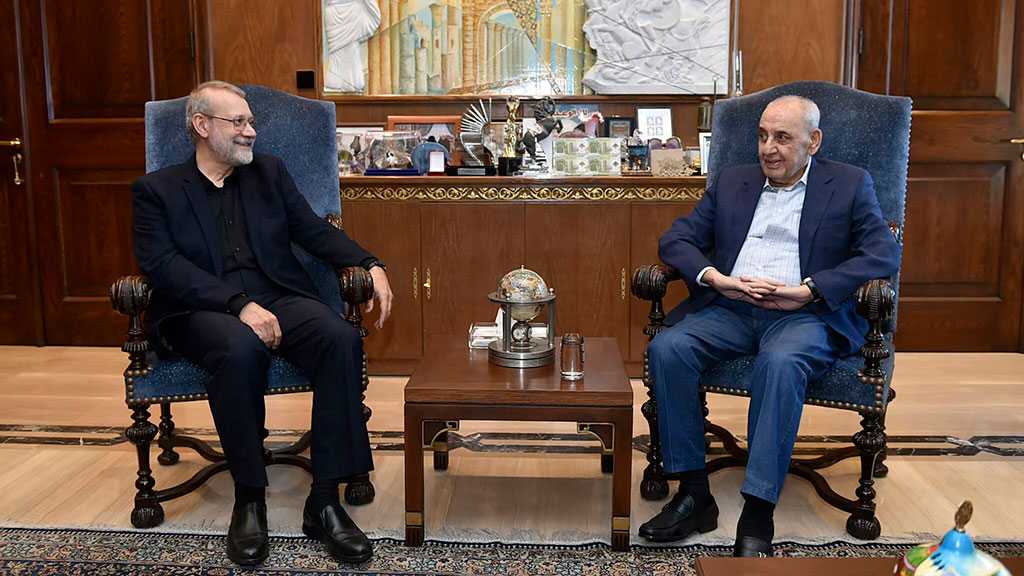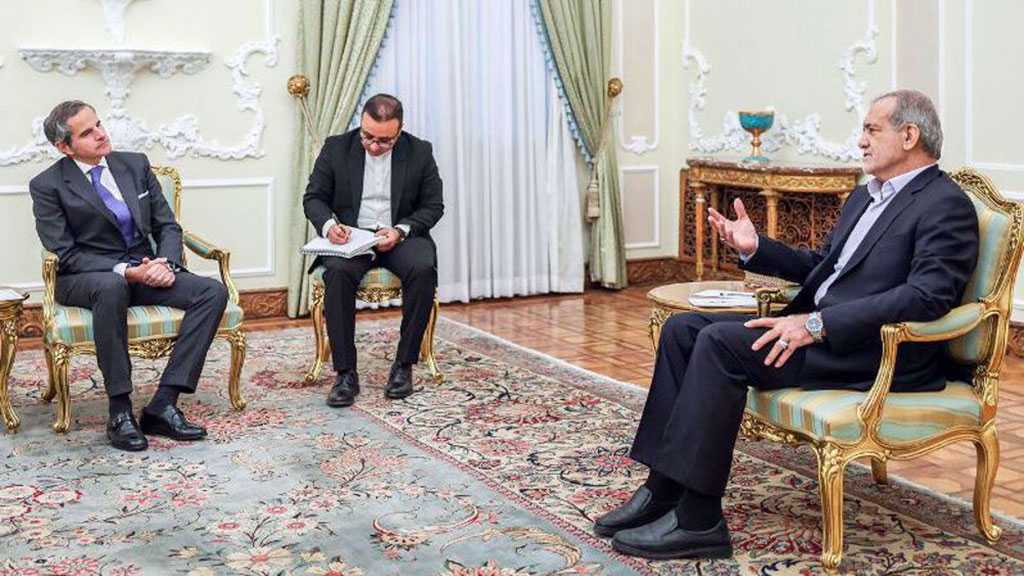Sayyed Al-Houthi: US Aircraft Carrier Still in Our Crosshairs, Will Be Hit Harder Next Time

By Staff, Agencies
The leader of Yemen’s popular resistance Ansarullah movement vows that the country’s Armed Forces will keep targeting USS Dwight D. Eisenhower, the aircraft carrier that has so far been struck twice during the forces’ anti-American operations.
“The American aircraft carrier ‘Eisenhower’ will remain a target for our Armed Forces whenever the opportunity arises,” Sayyed Abdul-Malik Al-Houthi said in a speech on Thursday.
“The upcoming strikes will be more impactful and effective,” he pledged.
The carrier was hit by the forces in the Red Sea on Friday and then on Saturday in response to the United States’ acts of aggression against Yemen.
American and British forces have been staging various offensives against the Arab Peninsula nation as means of trying to stop its pro-Palestinian operations.
Most recently, American and British warplanes and US warships targeted the western Yemeni provinces of Sanaa, Hodeida and Taizz, causing the martyrdom of at least 16 people and wounding more than 40 others.
Sayyed Al-Houthi went on to detail the forces’ operations against the carrier, which he praised as “one of the most notable and important operations to be carried out this week.”
He noted that the vessel had been hit twice within 24 hours, using seven cruise missiles and four drones.
After the strikes, “it [the carrier] retreated towards the northern Red Sea, fearing further targeting by our Armed Forces,” the Ansarullah leader said. “The ‘Eisenhower’ was 400 kilometers from the Yemeni coast during the targeting, then moved about 880 kilometers northwest of [the Saudi port city of] Jeddah,” he remarked.
“The operation to target the ‘Eisenhower’ was successful, and its air traffic halted for two days after the targeting.”
Washington, however, tried to deny that the vessel had been targeted, Sayyed Al-Houthi added, putting the denial down to “their [the Americans’] embarrassment and sense of defeat and loss of prestige.”
However, “the facts will be revealed no matter how much the Americans try to deny the targeting operations,” he stated.
Elsewhere in his remarks, the Yemeni leader said the “Israeli” entity had failed to realize its goals in the besieged Gaza Strip, which Tel Aviv has brought under a genocidal war since last October.
Among other things, the entity has been trying unsuccessfully to eliminate Gaza’s resistance movements through the military onslaught that began following a retaliatory operation by the groups.
Sayyed Al-Houthi contrasted the resistance’s successful steadfastness in the face of the “Israeli” military to Arab armies’ failure against the “Israeli” entity during Tel Aviv’s Six-Day War of 1967 against regional Arab territories.
“The Arab armies in 1967 had hundreds of planes, thousands of tanks and armored vehicles, and hundreds of thousands of soldiers, yet they did not last for six days,” he said.
“Currently, the Palestinian resistance has light and medium weapons, and the available rockets, yet the world sees the actual defeat level of the ‘Israeli’ enemy.”
The Ansarullah leader, meanwhile, hailed Yemeni forces’ earlier joint anti-“Israeli” operations with the Iraqi resistance.
Brigadier General Yahya Saree, the Yemeni armed forces’ spokesman, announced the operations earlier in the day, saying they featured operations on three ships that were carrying military equipment in the port of Haifa in the northern part of the occupied territories.
“The path of joint operations with the Islamic Resistance in Iraq will be important, strategic, and escalating,” Sayyed Al-Houthi asserted.




